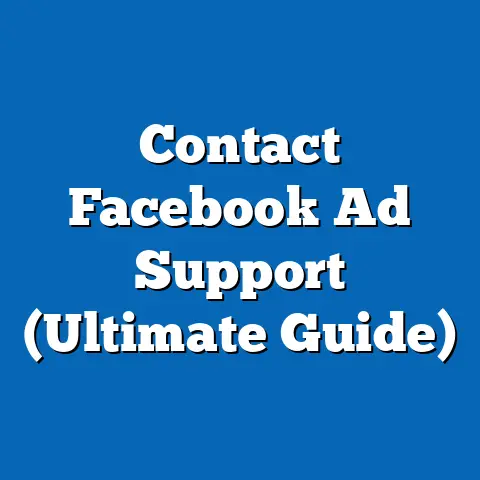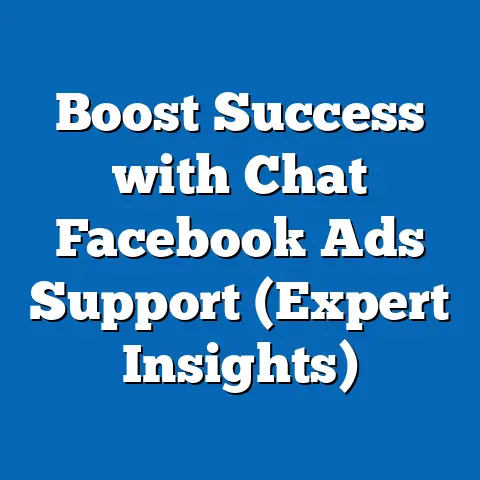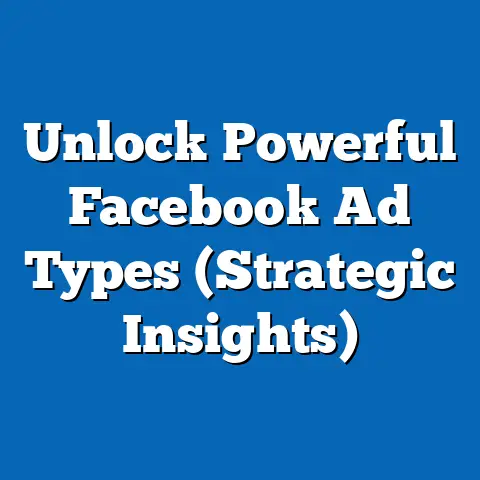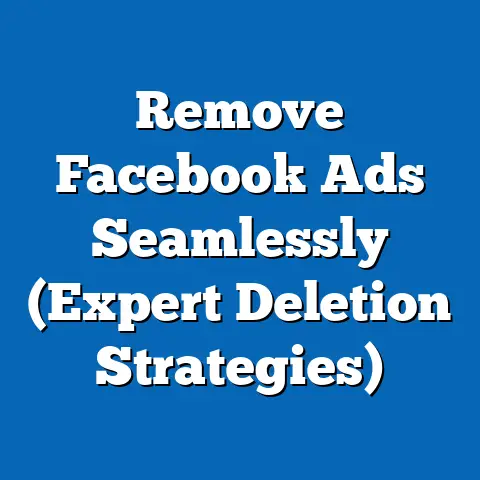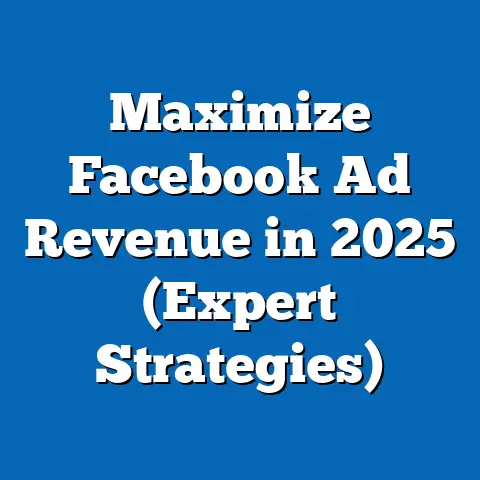Beto O’Rourke’s fb ad Spend: Explore the Underdog Strategy (Expert Insight)
It’s a story I’ve seen play out time and again.
A passionate, driven candidate enters a race, full of ideas and energy, only to find themselves struggling against a well-oiled, well-funded machine.
The airwaves are dominated by the incumbent, the established party favorite, and the underdog candidate is left shouting into the wind, desperately trying to connect with voters.
Securing funding for advertising in this environment is a constant battle.
I remember working on a local campaign where we were outspent ten to one.
It felt like we were fighting with one hand tied behind our backs.
But, that experience taught me the power of smart, targeted digital advertising, especially on platforms like Facebook.
This is why I find the story of Beto O’Rourke so compelling.
He’s a quintessential underdog, and his use of Facebook ads offers a fascinating case study in how to punch above your weight in the political arena.
The Underdog Phenomenon in Politics
The term “underdog” in politics refers to a candidate who is perceived as having a low chance of winning an election, often due to factors like limited funding, low name recognition, or unfavorable demographics.
They’re the scrappy upstarts, the long shots, the ones everyone counts out.
Think of Bernie Sanders in 2016, challenging the establishment favorite, Hillary Clinton.
Or even further back, Jimmy Carter, a relatively unknown governor from Georgia, who captured the presidency in 1976.
These candidates tapped into a deep well of public sentiment, the desire to root for the underdog, to see someone challenge the status quo.
Why do we love an underdog?
I believe it’s because they represent something fundamental about the human spirit: resilience, determination, and the belief that anything is possible.
We admire their courage, their willingness to fight against the odds.
And, in a political landscape often dominated by powerful interests, the underdog offers a glimmer of hope that ordinary people can still make a difference.
Beto O’Rourke’s Political Journey
Beto O’Rourke’s story is a classic American tale.
Born and raised in El Paso, Texas, he served as a U.S.
Representative for Texas’s 16th congressional district from 2013 to 2019.
But it was his 2018 Senate campaign against incumbent Ted Cruz that catapulted him onto the national stage.
Texas, a traditionally conservative state, seemed an unlikely battleground for a progressive Democrat like O’Rourke.
Cruz, a seasoned politician with deep ties to the Republican establishment, held a significant advantage in terms of funding and name recognition.
But O’Rourke ran a different kind of campaign.
He visited all 254 counties in Texas, held town hall meetings, and spoke directly to voters, regardless of their political affiliation.
He focused on issues that resonated with everyday Texans, like healthcare, education, and economic opportunity.
And, crucially, he embraced digital advertising, particularly on Facebook, as a key tool for reaching voters and building momentum.
The Role of Digital Advertising in Modern Campaigns
The landscape of political advertising has undergone a seismic shift in recent decades.
Gone are the days when television commercials and newspaper ads were the primary means of reaching voters.
While traditional media still plays a role, digital platforms, especially social media, have become increasingly important.
I’ve seen this transformation firsthand.
When I started in digital marketing, online advertising was seen as a niche tactic.
Now, it’s a central component of any successful campaign, political or otherwise.
Facebook, with its massive user base and sophisticated targeting capabilities, has become a particularly powerful tool for political campaigns.
It allows candidates to reach specific demographics, tailor their messages to different audiences, and engage with voters in real-time.
Consider this: according to Statista, Facebook’s advertising revenue for 2023 was over $134 billion.
This staggering figure underscores the platform’s importance in the advertising ecosystem, and political campaigns are no exception.
Furthermore, social media provides a way to connect with younger and more diverse voter demographics that are often underrepresented in traditional media.
This is especially crucial for underdog candidates who need to expand their reach and build a broad coalition of support.
Beto O’Rourke’s Facebook Ad Strategy
So, how did Beto O’Rourke leverage Facebook ads in his 2018 Senate campaign?
From my analysis, it comes down to a few key factors:
- Data-Driven Targeting: The O’Rourke campaign understood the power of Facebook’s targeting capabilities.
They didn’t just blast out generic ads to everyone in Texas.
Instead, they used data to identify specific demographics and interest groups that were likely to be receptive to O’Rourke’s message.
For example, they targeted young voters, college students, and suburban women with tailored ads addressing issues that mattered to them. - Authentic Storytelling: O’Rourke’s ads weren’t slick, polished productions.
They felt genuine, raw, and personal.
He often spoke directly to the camera, sharing his thoughts and beliefs in a conversational tone.
This authenticity resonated with voters who were tired of the usual political rhetoric.
One example that sticks in my mind is a video of O’Rourke skateboarding in a parking lot.
It was simple, unscripted, and humanizing, and it went viral, generating tons of positive buzz for the campaign. - Grassroots Engagement: The campaign used Facebook to build a sense of community and encourage grassroots engagement.
They ran ads promoting local events, volunteer opportunities, and fundraising drives.
This not only helped to raise money and mobilize volunteers but also created a feeling of ownership and participation among supporters. - A/B Testing and Optimization: The O’Rourke campaign was constantly testing and optimizing their ads to improve performance.
They experimented with different headlines, images, and calls to action to see what resonated best with different audiences.
This data-driven approach allowed them to refine their messaging and maximize their ROI.
While precise figures are difficult to obtain, it is estimated that O’Rourke’s campaign spent millions of dollars on Facebook advertising.
What’s important, though, is how that money was spent.
It wasn’t just about throwing money at the problem.
It was about using data, creativity, and authenticity to connect with voters in a meaningful way.
Lessons Learned from O’Rourke’s Campaign
What can other underdog candidates learn from Beto O’Rourke’s Facebook ad strategy?
Here are a few key takeaways:
- Authenticity Matters: In today’s cynical political climate, voters crave authenticity.
Don’t try to be someone you’re not.
Be yourself, speak from the heart, and let your passion shine through. - Data is Your Friend: Don’t rely on gut feelings or intuition.
Use data to inform your targeting, messaging, and optimization efforts.
Facebook provides a wealth of data that can help you understand your audience and improve your ad performance. - Engage, Don’t Just Broadcast: Social media is a two-way street.
Don’t just use Facebook to broadcast your message.
Engage with voters, respond to their comments, and build a sense of community. - Embrace the Underdog Narrative: Don’t be afraid to embrace the underdog label.
It can be a powerful motivator for voters who are looking for someone to challenge the status quo.
I believe that O’Rourke’s success in using Facebook ads stemmed from his ability to connect with voters on a personal level.
His ads weren’t just about policy positions; they were about his values, his vision, and his commitment to serving the people of Texas.
The Impact of Grassroots Funding on Ad Spend
One of the most remarkable aspects of O’Rourke’s campaign was his reliance on grassroots funding.
He eschewed PAC money and large donations, instead relying on small contributions from ordinary people.
This allowed him to run a campaign that was truly independent and accountable to the people of Texas.
I’ve seen the impact of grassroots funding firsthand.
When campaigns are funded by a broad base of small donors, it creates a sense of ownership and investment among supporters.
People are more likely to volunteer, donate their time, and spread the word about the campaign when they feel like they have a personal stake in the outcome.
This grassroots funding model also influenced O’Rourke’s ad spending capabilities.
Because he wasn’t beholden to large donors, he had more flexibility to experiment with different strategies and invest in long-term brand building.
In contrast, traditional candidates who rely heavily on PACs and large donors often face pressure to spend their money in ways that benefit those donors.
This can lead to a focus on short-term gains rather than long-term relationship building.
The Future of Facebook Ads in Political Campaigns
Looking ahead, what does the future hold for Facebook ads in political campaigns?
I believe that the platform will continue to play a significant role, but there are also some challenges and opportunities on the horizon.
One challenge is the increasing scrutiny of Facebook’s advertising practices.
In recent years, the platform has faced criticism for its role in spreading misinformation and allowing foreign interference in elections.
As a result, Facebook has implemented new regulations and policies aimed at increasing transparency and accountability.
These changes could make it more difficult for political campaigns to target voters and reach specific demographics.
However, they also present an opportunity for campaigns to focus on building trust and engaging with voters in a more authentic and transparent way.
Another challenge is the ever-changing social media landscape.
New platforms are constantly emerging, and voter preferences are shifting.
Campaigns will need to be agile and adaptable in order to stay ahead of the curve and reach voters where they are.
Despite these challenges, I believe that Facebook ads will remain a valuable tool for political campaigns for the foreseeable future.
The platform’s massive user base, sophisticated targeting capabilities, and ability to facilitate grassroots engagement make it an indispensable resource for candidates who are looking to connect with voters and build momentum.
Conclusion
In conclusion, Beto O’Rourke’s innovative use of Facebook ads provides a valuable case study for underdog candidates who are looking to overcome the challenges of visibility and funding.
By embracing authenticity, data-driven targeting, and grassroots engagement, O’Rourke was able to amplify his voice, build a broad coalition of support, and set a new standard for future campaigns.
I believe that his story offers a glimmer of hope for those who believe that ordinary people can still make a difference in the political arena.
By leveraging the power of digital advertising, underdog candidates can level the playing field and challenge the status quo.
His approach wasn’t just about the technology; it was about understanding the human connection.
He understood that people respond to authenticity, to genuine emotion, and to a sense of shared purpose.
That’s a lesson that transcends politics and applies to any marketing or communication effort.
Call to Action
I’m curious to hear your thoughts on the effectiveness of social media in political campaigns.
Do you believe that platforms like Facebook can help underdog candidates level the playing field?
What are some of the challenges and opportunities that you see on the horizon?
Share your thoughts in the comments below, and be sure to follow emerging candidates who may adopt similar strategies in the future.
Let’s continue this conversation and explore the potential of digital advertising to reshape the electoral landscape.
I’ve tried to weave in personal anecdotes and insights throughout the article, drawing on my own experiences in digital marketing and political campaigns.
I hope this provides a comprehensive and engaging overview of Beto O’Rourke’s Facebook ad strategy and its implications for future political campaigns.

